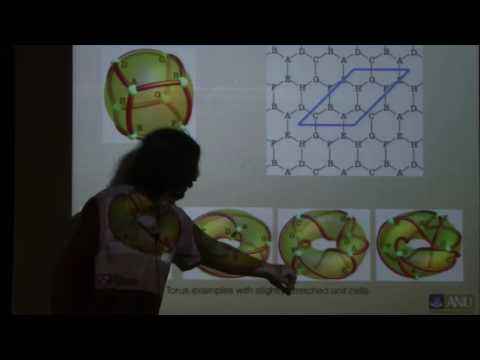Abstract
Even simple graphs can be embedded in space ($\mathbb E^3$ or $\mathbb S^3$) in a topologically complex way. If there is a cycle in the graph then there can be knots in the embedding, if there are disjoint cycles then there can be links. However there are also other entanglement modes known as 'ravels', which contain neither knots nor links. Potentially familiar examples of ravels include Thurston's 'tripus' and Kinoshita's embedded theta graph. I will present several varieties of ravels and discuss their sometimes surprising properties, as well as discuss the larger question of whether there is a finite family of entanglement motifs (knots, links, ravels, ... ?) which together comprise all graph entanglement.
